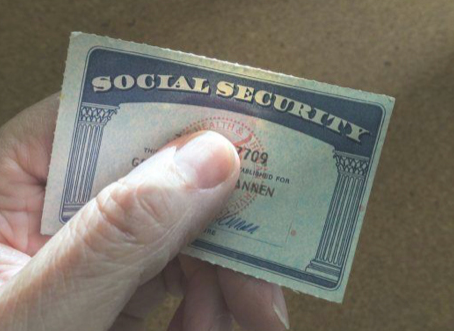|
Your Social Security number is unique to you and stays with you for life. In fact,
more than 5.5 million new numbers are assigned each year. Your number’s main purpose is to keep track of how much you have paid into the Social Security program. However, you might not realize how much of your personal information people can get their hands on by a simple search or two using your Social Security number.
Here, we’ll look at what your Social Security number means and the wealth of information at the fingertips of anyone who searches using your number.
1. The 9 digits
The first three digits: These are known as the area numbers. If you got your card prior to 2011, they reflect the mailing address listed on your application. As such, these digits indicate where you lived when you applied for the card. In 2011, however, the Social Security Administration (SSA) started assigning numbers in a random way, so these newer numbers don’t correlate with any location.
The remaining six digits: These belong to what’s called the group and serial numbers. They don’t actually say anything specific about you. They just break down the area number further to make administration easier for the SSA.
Since the digits at face value reveal very little about you, read on to see how employers and other parties can find out so much about you using your Social Security number. (Hint: It’s tied in with your credit report.)
2. Names you use
A trace using your Social Security number will typically reach out to the major credit bureaus. They will report back a list of different names you have used when applying for credit. These are referred to as aliases. Instances where there will be more than one alias include if you got married and changed your last name. If your name is Charles but you sometimes apply for credit under the name Chuck, the bureaus will have both aliases on file. If you sometimes apply for credit and include your middle name or middle initial, these variations will be listed as well.
3. Where you have lived
Credit bureaus record the address where you live, along with your Social Security number, each time you apply for a credit card or loan. As such, when you change residences over the years, credit bureaus will have a collective record of all your addresses. This is how anyone who performs a credit check using your Social Security number will gain access to your address history.
4. Criminal records
Once someone has used your Social Security number to find out information on your name and address history, they can use that information to determine if you have a criminal background. Prospective employers often do such background checks. They may hire a separate company to do them, since they can be complex searches, especially when an applicant has moved around a lot.
Employers or others seeking criminal records often do a state criminal check. Since counties report criminal information to the state, a thorough search also usually involves checking with the counties in which a person has reported living.
5. Marriage and divorce records
The general public can access most vital records. If your state has laws that allow third-party requests, your marriage or divorce records will be accessible to anyone requesting them. While having a person’s Social Security number isn’t required to obtain these records, it makes the search much easier.
6. Employment history
Your Social Security number is linked to your employment history. When you provide your employer’s name to credit card companies and other lenders, they in turn share this information with credit bureaus. In addition, your local Department of Labor agency has a listing of all employers who reported quarterly wages on you, based on your Social Security number.
7. Foreclosure and repossession
Your Social Security number can be used to look up any foreclosures or repossessions on your record. If you’ve been through either of these unfortunate scenarios, your lenders have reported it to the credit bureaus. Anyone using your Social Security number to run your credit report will be able to see such information. Both foreclosures and repossessions typically stay on your report for seven years. Repossession is its own category on credit reports. While a foreclosure itself is not always obvious on the reports, someone well versed in reading credit reports will be able to find it.
8. Bankruptcy
As you’ve probably guessed, if your Social Security number can be tied to foreclosures and repossessions, it can also be tied to bankruptcy. Someone could look up this information on you the same way — by doing a credit check. A Chapter 7 bankruptcy remains on your report for 10 years, while a Chapter 13 bankruptcy lingers there for seven years from the date filed.
This article originally published on CheatSheet.com by Karen Bennett
Posted Saturday, February 10 2018 11:00 AM
Tags : 8 Powerful Things Your Social Security Number Reveals About You
|